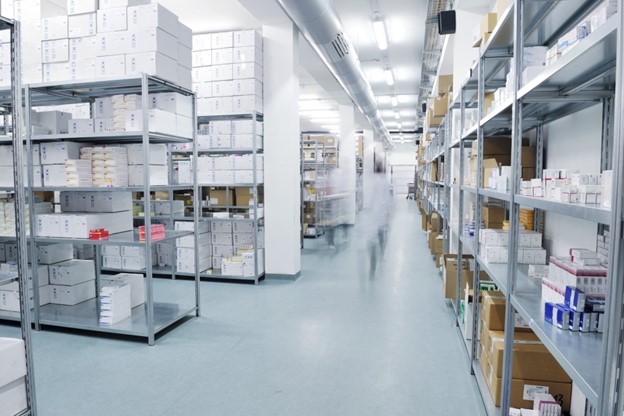Have you earned your medical degree from a reputable university? Are you thinking about the supplies that you need to start your own medical practice?
Starting a new medical clinic is no easy task. Not only do you need certification from a clinical institution. You also need to invest in clinical supplies for running your own practice. Once you have the credentials and the equipment, your clinic will be operational in no time.
Read on to learn more about the best supplies to invest in while you’re opening your medical center.
Basic Diagnostic Tools
One of the essential categories of clinical equipment to have is basic diagnostic tools. These common medical tools include items such as stethoscopes, blood pressure cuffs, thermometers, and otoscopes.
These tools allow healthcare providers to assess a patient’s vital signs. It also allows a doctor to listen to heart and lung sounds. These tools also help examine the ears and throat for any abnormalities.
Basic Medical Supplies
Basic medical supplies for administering medications include syringes, needles, alcohol pads, and gloves. It is also important to have a well-stocked medication cart or cabinet. Make sure that it has proper labeling and organization to prevent any mix-ups.
It’s also important to store the vaccines in a designated refrigerator at the right temperature. A reliable system should be in place to track end dates and ensure timely replenishment. Proper training for staff on the handling and storage of medications and vaccines is also essential.
Proper Sterilization Equipment
Having proper sterilization tools is crucial to ensure the safety of patients. Some essential items include autoclaves and ultrasonic cleaners. Autoclaves use high-pressure steam to sterilize equipment and instruments. An ultrasonic cleaner uses sound waves to remove debris from tools.
A functioning sterilization equipment not only protects patients. It also ensures the effectiveness of medical procedures and the maintenance of a hygienic environment.
Other Medical Consumables
It is important to stock up on other medical consumables. These may include items such as urinalysis test strips, thermometers, and wound care products. It is also important to restock and replace these supplies to ensure that they are always available when needed.
Advanced Medical Equipment
Clinics should also have more advanced medical equipment, like different types of ICDs. These devices are used to regulate and correct abnormal heart rhythms. This makes them essential in emergency situations.
Other equipment to have in a clinic include EKG machines, ultrasound machines, and portable X-ray machines. These advanced tools allow medical professionals to diagnose and treat various medical conditions. This enhances the quality of care provided to patients.
Invest in the Right Clinical Supplies and Equipment Today
Having the right equipment in a medical clinic is crucial for ensuring efficient and effective patient care. Clinical supplies play a vital role in the successful operation of a medical facility.
To ensure the best possible outcomes for patients, it is important for clinics to assess and update their equipment inventory. Invest in your clinic and invest in the health of your patients.
Head over to our blog for more helpful reads!
Read Also
- Transforming Patient Care with Professional Healthcare Transcription ServicesIn today’s fast-paced healthcare environment, the need for precise and timely documentation cannot be overstated. Accurate documentation is not merely an ancillary task; it is a core element of delivering high-quality patient care. The ability to maintain compliance with regulations, enhance operational efficiency, and ensure the integrity of patient records has never been more critical.… Read more: Transforming Patient Care with Professional Healthcare Transcription Services
- Essential Steps to Launch Your Own Optometry PracticeLaunching your own optometry practice can be a thrilling and fulfilling journey. However, it requires careful planning, dedication, and an understanding of what it takes to succeed. With the growth in demand for eye care, more and more individuals are seeking to start their own practices. But how do you get there? This guide walks… Read more: Essential Steps to Launch Your Own Optometry Practice
- Compounding Pharmacy: Personalized Medication SolutionsA compounding pharmacy plays a vital role in modern healthcare by providing customized medications tailored to the specific needs of individual patients. Unlike mass-produced drugs manufactured by pharmaceutical companies, compounded medications are prepared by licensed pharmacists who carefully combine, adjust, or modify ingredients to create a formulation that best suits a patient’s unique medical requirements.… Read more: Compounding Pharmacy: Personalized Medication Solutions
- The Best Business Decision a Surgeon Ever Made: Ordering a Medical Equipment AppraisalMost surgeons don’t go into medicine because they love spreadsheets, valuations, or negotiating buy-ins. They go into medicine because they want to operate, treat patients, and build something meaningful over time. For one surgeon, that mindset worked perfectly, until the day another surgeon decided to buy into his practice. That moment exposed a problem he… Read more: The Best Business Decision a Surgeon Ever Made: Ordering a Medical Equipment Appraisal
- Creative Approaches to Alleviating Healthcare Staff ShortagesHospitals and clinics are facing staff shortages, which makes it harder to take care of patients well. Finding simple and useful solutions is very important. Easy changes like flexible work hours, good training, and chances to grow can help staff stay happy. Technology, like online doctor visits and helpful tools, can make work easier. Smart… Read more: Creative Approaches to Alleviating Healthcare Staff Shortages






